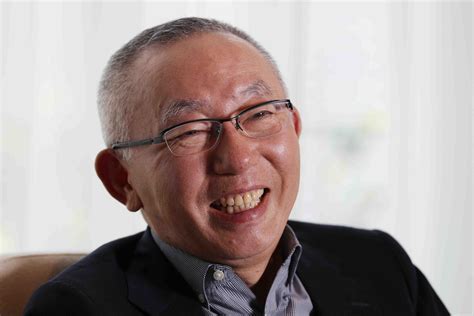A Quote by Tadashi Yanai
People say that globalisation has negative aspects, but I don't believe globalisation is bad. It's criticised from a western perspective, but if you put yourself in the shoes of people in the developing world, it provides an unprecedented opportunity.
Related Quotes
Incidentally, I don't think there is a non-adjectival 'globalisation'. What we have now is a particular form: dominated by finance and multinational corporations and by a rhetoric (though not a reality) of 'free trade' and market forces. So I'm not a localist. I'm an internationalist, but one who believes (a) that such a thing is really only possible through a prior grounding and (b) that the terms of our present globalisation have to be challenged politically.



































